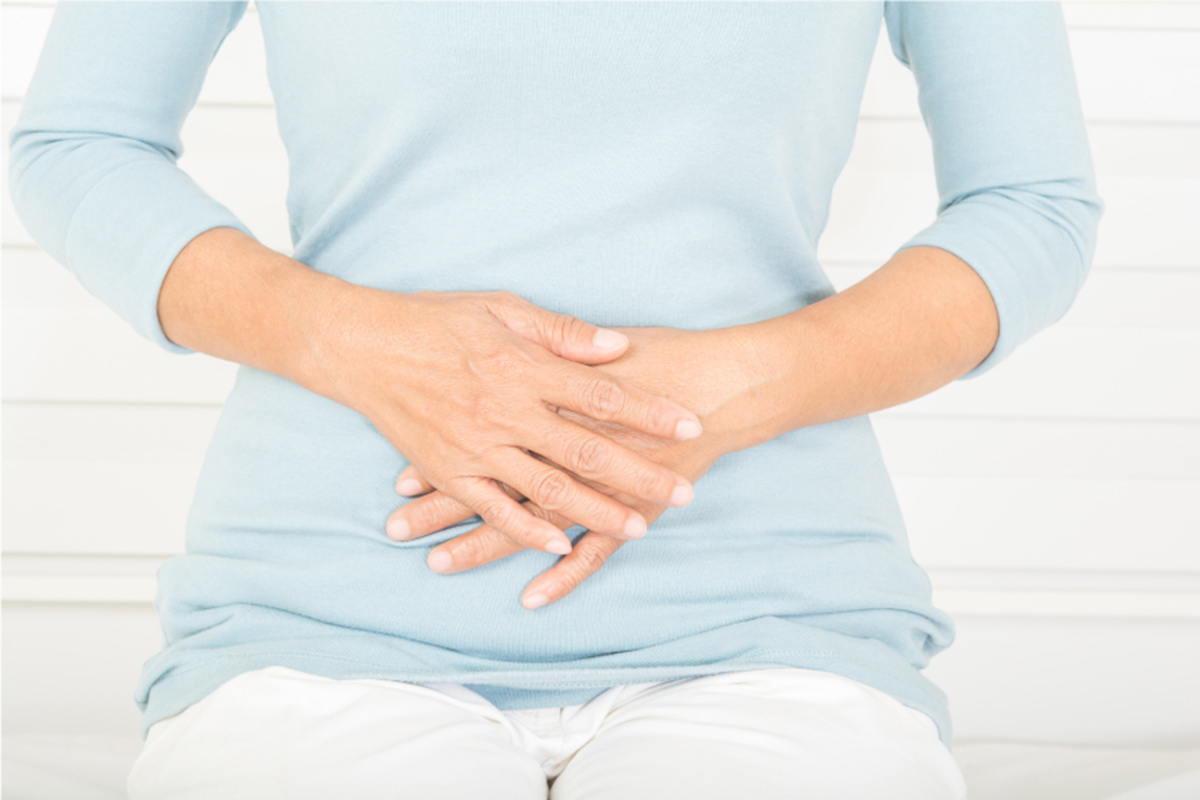The "average woman" — nothing more than a statistical entity, really — will enter the menopause at age 51 in the United States, but some will have periods until they're 59, while others will have the big change as early as 35. This is all considered normal; the menopause is deemed premature only if you enter it before your mid-thirties.

What can you expect from your periods during the perimenopause?
It's called "going through the menopause" for a reason — you can expect a gradual transition that can take around four years rather than a "boom, you're done" situation. Initial symptoms may range from tender breasts to headaches to fatigue or mood swings. Changes in your menstrual cycle are only one aspect of the process, but they may be among the first things you notice.
The estrogen and progesterone that regulate your menstrual cycles follow predictable patterns during the reproductive years, usually leading to a menstrual cycle you become intimately familiar with — whether your cycle used to be long, short, or irregular, and your flow used to be light, medium, or heavy.
As you go through the menopause, your periods can be:
- Irregular and unpredictable — showing up surprisingly frequently or staying away for a long time, without any way to predict what will happen next.
- Longer than before, or shorter — think one-day periods or a menstrual flow that lasts more than a week.
- Very light — some women hardly need tampons or pads anymore, and get by fine with a panty liner.
- Nowhere to be seen. Remember, though, that you haven't hit the menopause until you've gone without periods for a year, and another period may show up even if you're pretty sure it won't.
Around a quarter of perimenopausal women also experience abnormally heavy menstrual periods — menorrhagia. Symptoms may include:
- Soaking through heavy-duty tampons or pads within an hour, several hours in a row.
- Bleeding longer than a week.
- Expelling larger clots of tissue and blood.
- Feeling unable to take part in normal activities because of your menstrual flow.
- Feeling dizzy or faint — signs that your heavy flow has caused anemia.
Other symptoms of the perimenopause
The menopause may play some interesting tricks on your menstrual cycle, but that's unfortunately far from the only symptom many women experience. It's also not uncommon to have:
- Hot flashes
- Night sweats
- Tender breasts
- Changes in your sleep pattern
- Headaches
- Trouble concentrating and forgetfulness
- Abdominal weight gain
- Painful, achy muscles
- Urinary tract infections
- Mood swings
- A lowered libido, in part caused by the vaginal dryness you may also experience
When should you see a doctor about menopause-related period nightmares?
The weird periods most women experience during the perimenopause are completely normal and nothing to worry about — you don't need to see a doctor if your periods have become irregular or lighter. You should, however, be on the lookout for symptoms that could indicate you're facing more than the "big change":
- Your menstrual flow is so heavy that you need more than one pad or tampon an hour, multiple hours in a row.
- You experience vaginal bleeding more than once every three weeks.
- Your menstrual flow lasts very long — more than a week
- You experience bleeding or spotting between periods (though it's hard to tell what is and isn't a period during the perimenopause)
Your doctor may find that everything is normal, and you're simply suffering from the perimenopause. In some instances, however, you'll need further treatment depending on the reason for your excessive bleeding. This may include:
- Hormone therapy — this includes hormonal contraceptives and hormone-release intrauterine devices (Mirena). Yes, they're suitable for perimenopausal women who don't have another reason for which they can't use them.
- Surgery — like uterine artery embolization, myolysis, myomectomy, and in some cases even a hysterectomy — if you have polyps or fibroids.
- A hysterectomy, chemotherapy, hormone therapy, and radiation all sometimes come into play in the treatment of uterine cancer.
- Photo courtesy of SteadyHealth.com
- www.womenshealth.gov/menopause/menopause-basics
- www.ncbi.nlm.nih.gov/pmc/articles/PMC4002192/
- www.menopause.org/for-women/menopauseflashes/menopause-symptoms-and-treatments/are-we-there-yet-navigate-now-with-our-guided-menopause-tour
- www.health.harvard.edu/womens-health/perimenopause-rocky-road-to-menopause
- www.acog.org/Patients/FAQs/Perimenopausal-Bleeding-and-Bleeding-After-Menopause


Your thoughts on this